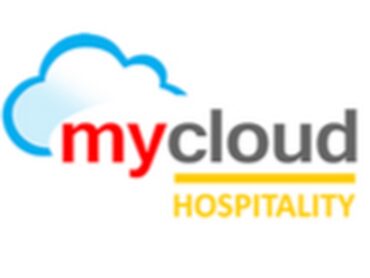Building Mobile Apps to Boost Meetings
It’s no secret that mobile software — apps — are emerging with many new and interesting functions to change nearly everything about our daily lives. It’s widely known that the convergence of hotels, social marketing and real-time guest interactions is already well underway via mobile and tablet devices. All pursuits in this field tend to obey the general paradigm that their usage will in turn enhance a guest’s perception of a hotel. Apps built for improving meetings work the same way.
If there’s a piece of software that can increase an event attendee’s ability to enjoy an upcoming, current or past conference, this ignites a virtuous cycle of positive outcomes. In the aftermath of a successful meeting, the planners would subsequently receive higher recognition for their efforts, increasing their ability to propagate future business ventures. Likewise, the meeting or conference center (often a hotel) would indirectly share in this praise, contributing to a myriad of desirable metrics further down the road – more business bookings, heightened occupancies and, ultimately, increased revenues.
Many of your sales teams are already utilizing electronic group-RFP search engines such asCvent. This program enhances your property’s ability to secure new business. But what about enhancing the experience for your conference delegates once they are on property? That’s the basis for Cvent’s new meeting and event mobile app division entitled CrowdCompass. This is a totally new field. I had an opportunity to talk to the Director of Sales, Matthew Donegan-Ryan, and get a firsthand demonstration. CrowdCompass aims to be a holistic and interactive mobile platform with many takeaway lessons for hoteliers to better understand how technology will impact this side of the industry and how smartphone integration can augment guest satisfaction.
CrowdCompass’s main function is for onsite coordination – showing when and where various sessions are taking place (in addition to a reminder system built around this). It’s a self-service product principally targeted at event planners who are then given the power to edit content within the app in much the same way as a website’s CMS. But the developer has added two other crucial features which give this software more depth and value to both organizers and attendees.
First, CrowdCompass is designed to help phase out ‘static’ promotional materials for upcoming conferences – printed guides, brochures, pamphlets, web graphics and so on – by allowing organizers to update event schedules and supplemental information as they become available. By using the app, an attendee will always be up-to-date with what is happening (or what will be happening) at a convention as well as offer an access point for any attached PDFs, powerpoints or other documents meant to complement a given seminar. Moreover, the app can be strategically released at the same time as an event’s announcement even with some of the blanks not filled in (time slots, speakers, sponsors, award galas, food vendors and so on), making it a preliminary sales tool for planners, organizers and hotels.
Second, CrowdCompass is social. The app allows for a high degree of sharing by integrating with social media (at the organizer’s discretion) as well as possessing functionality across multiple devices (mobile and tablet with compatibility for both iOS and Android). This is important as it gives more power to attendees and enhances their appreciation of a conference.
For example, a male business guest wants to attend two sessions at the same time. No decision agony required. He chooses one, and afterwards, he can use the app to discuss his selection as well as read about what was covered in session he missed from other attendees. This, in addition to the app’s ability to store seminar documents for download and further study. In this way, CrowdCompass becomes a ‘digital hub’ for all conference activity.
What can apps do to enhance your meetings business?
I’m of the ‘old guard’ insofar as I believe that sometimes our phones can sometimes get in the way of person-to-person interactions, especially at large-scale meetings where a multitude of introductions and handshakes are perfunctory. But statistics don’t lie. The billion-plus smartphone owners (myself included) are on their devices constantly and over 90% of business users prefer to receive information on an app than through a reflexively-designed website or via paper. You have to meet consumers at the channels they want to use, and in this sense, apps are the way to go.
Let me remind you that CrowdCompass is intended for licensing to meeting planners and organizers, but that doesn’t mean that hotels should remain neutral or abstain from encouraging or endorsing mobile integration for conference attendees. Think of all the ancillary benefits you can afford your guests via cooperation with an app controller (in this case, a meeting planner). By helping feed pertinent details, from basic shuttle information to more elaborate information on local attractions and nightlife, it all boils down to providing the best possible experience for your business guests.
Even if a conference does not take place on your property, an app that improves the event experience for attendees consequently reflects well on partnered hotels. For this virtue alone, you’d best consider meeting apps like CrowdCompass as yet another ancillary method to augment guest satisfaction. Seek out these ‘digital hubs’ for your business guests and you can’t go wrong.
(Article published by Larry Mogelonsky in eHotelier on June 10, 2013)




